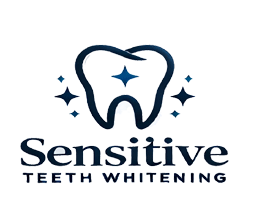
Tooth grinding is known in clinics as bruxism. Many people face it, especially while they sleep. Clenching or grinding your teeth without a plan can wear down enamel, lead to jaw pain, and cause headaches. This article gives steps to cut tooth grinding and improve your mouth care.
Understanding Bruxism
Tooth grinding can occur both by day and by night. It shows up more when you sleep because your muscles have less control. Stress, worry, crooked teeth, or habits like drinking too much caffeine or alcohol can start the habit. Knowing why you grind your teeth helps you cut the habit.
1. Identifying and Managing Stress
Stress plays a big part in causing nighttime grinding. Reducing stress may lower your tooth grinding. Try adding calm routines into your day. For example:
- Mindfulness Meditation: Focusing on your thoughts may ease worry and lessen the urge to grind.
- Deep Breathing Exercises: Slow breaths may drop stress and bring calm before sleep.
- Yoga or Exercise: Moving your body each day may cut stress and help your mind.
2. Creating a Sleep-Friendly Environment
Your sleeping space helps decide if you grind your teeth at night. Use these tips:
- Comfortable Bedding: Ensure your bed and pillows help you rest well.
- Dim Lighting: Keep the room dark and quiet to signal that it is time for sleep.
- Avoid Electronics: Stop screen time at least one hour before sleep to support good rest.
3. Mouthguards: A Practical Solution
Mouthguards help stop tooth grinding. These guards fit your teeth and work at night to cushion them. A dentist can fit the guard to protect your teeth and drop any pain. Even if it takes time to get used to a mouthguard, many notice less grinding and lower pain over time.
4. Avoiding Stimulants
Some drinks and items can make tooth grinding worse. To cut the habit, think about cutting these:
- Caffeine: Coffee, tea, or soft drinks with caffeine can raise worry. Have less of these in the later part of the day.
- Alcohol: It may help you fall asleep, but it can disturb sleep and cause more grinding.
- Nicotine: Smoking or using tobacco can raise stress, which may boost grinding.
5. Regular Dental Checkups
Going to the dentist often is good for those who grind their teeth. Your dentist can check the state of your teeth and give advice or fix crooked teeth. A dentist can also plan a way to cut bruxism.
6. Behavioral Therapy
Bruxism can become a habit over time. Changing how you act when stressed may cut nighttime grinding. A therapist who helps with stress management can teach ways to drop the habit.
Conclusion
Cutting your tooth grinding may need a mix of self-care, changes in your routine, and help from experts. By facing the causes and trying these steps, you can say goodbye to nighttime clenching and grinding. Keep on making small changes each day to better your mouth care and overall health. If you feel you suffer from bruxism, talk with a dental expert to plan the help you need.




